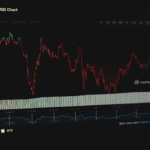In the volatile world of cryptocurrencies, stability is often elusive. In such circumstances, investing in stablecoins can help you mitigate the extreme price fluctuations inherent in the crypto market. Understanding stablecoins and their pivotal role in the crypto ecosystem is crucial for seasoned investors and newcomers.
What Are Stablecoins?
Stablecoins are cryptocurrencies pegged to the value of traditional assets like fiat currencies or commodities. This pegging mechanism ensures that stablecoins maintain a relatively stable value, hence the name.
One of the most common types of stablecoins are those pegged to fiat currencies like the US dollar or Euro. These fiat-backed stablecoins are backed by reserves of the corresponding fiat currency held in a bank account. Another category of stablecoins is backed by commodities like gold or silver, offering investors exposure to the stability of these physical assets while retaining the advantages of blockchain technology.
The Role of Stablecoins in the Crypto Ecosystem
Stablecoins serve multiple purposes within the crypto ecosystem. They provide a safe haven for investors during periods of market volatility. This stability also makes stablecoins an attractive option for merchants and businesses looking to accept digital payments without exposure to crypto price fluctuations.
Stablecoins facilitate seamless trading and liquidity provision on cryptocurrency exchanges, acting as a bridge between fiat currencies and other digital assets. They enable traders to quickly exit volatile positions and hedge against market risks without incurring delays.
Want to invest in Stablecoins? The team at Kenson Investments can help you. We can guide you about different Stablecoins and assist you in making an investment plan from scratch. Get in touch with our team for more information.
Disclaimer: The content provided on this blog is for informational purposes only and should not be construed as financial advice. The information presented herein is based on personal opinions and experiences, and it may not be suitable for your individual financial situation. We strongly recommend consulting with a qualified financial advisor or professional before making financial decisions. Any actions you take based on the information from this blog are at your own risk.














